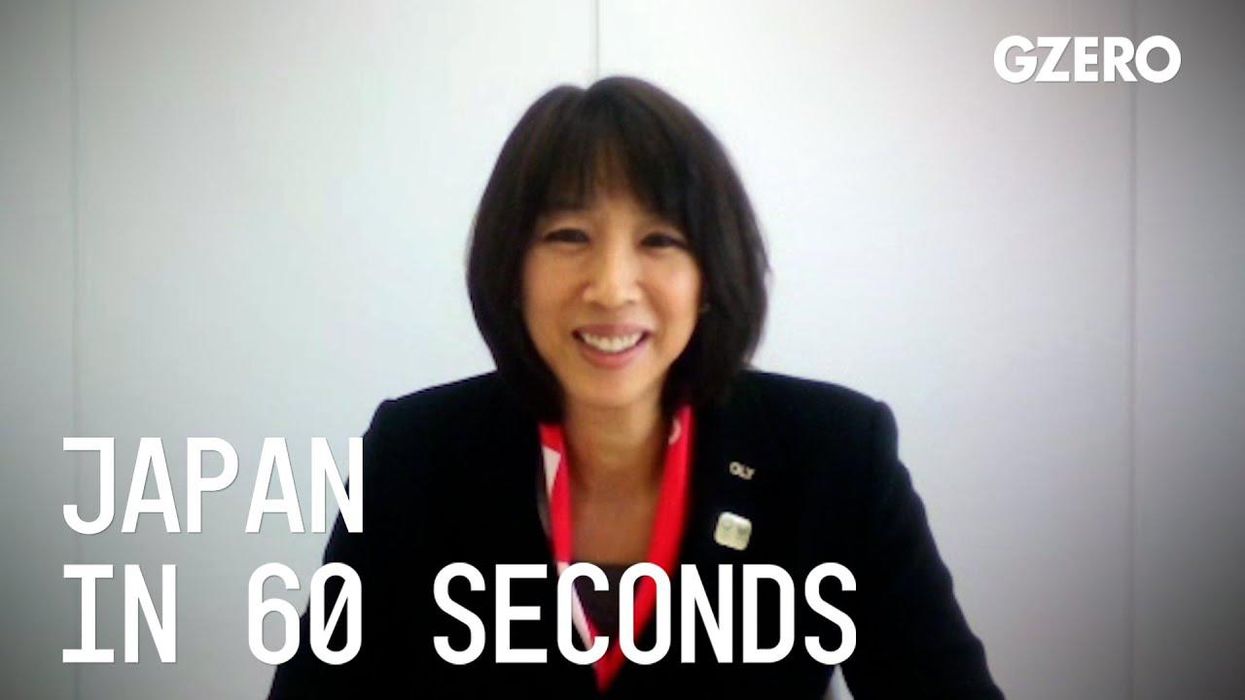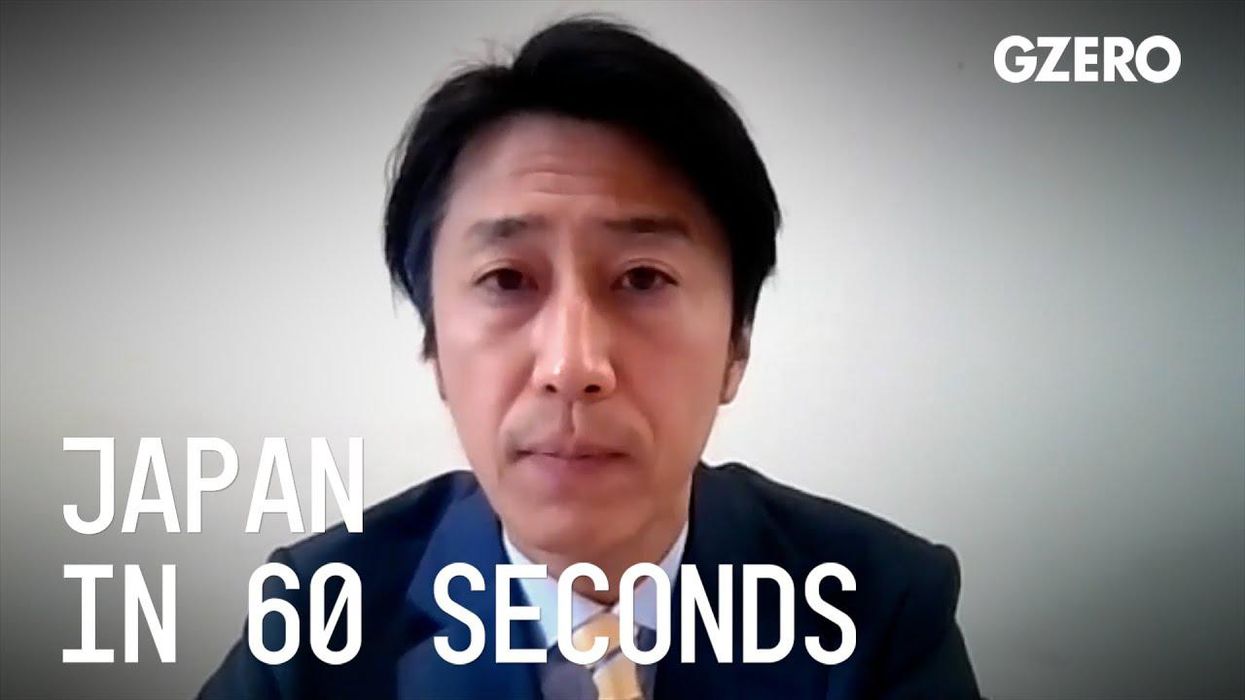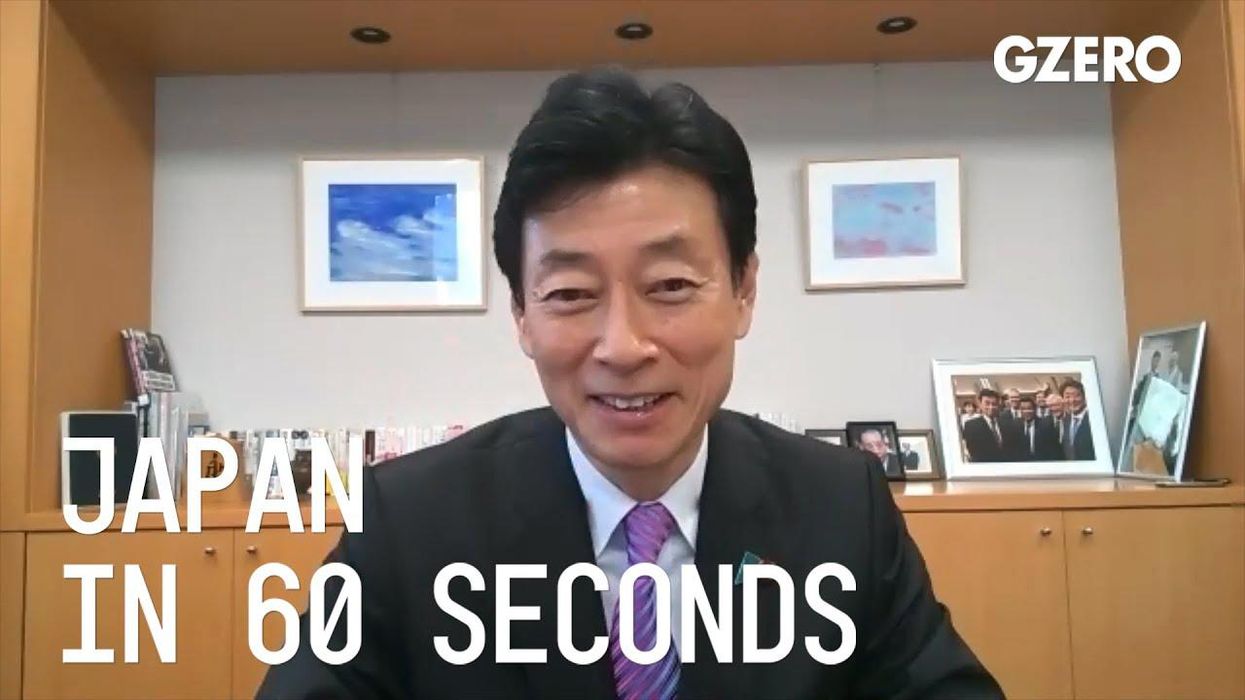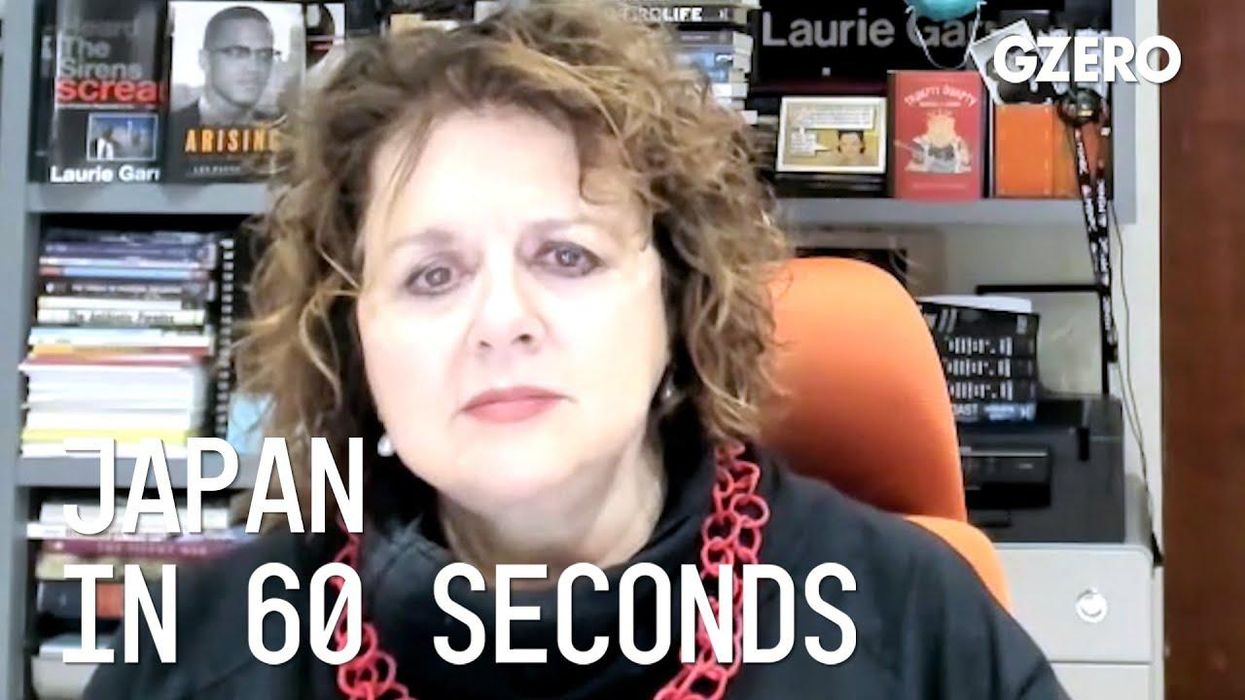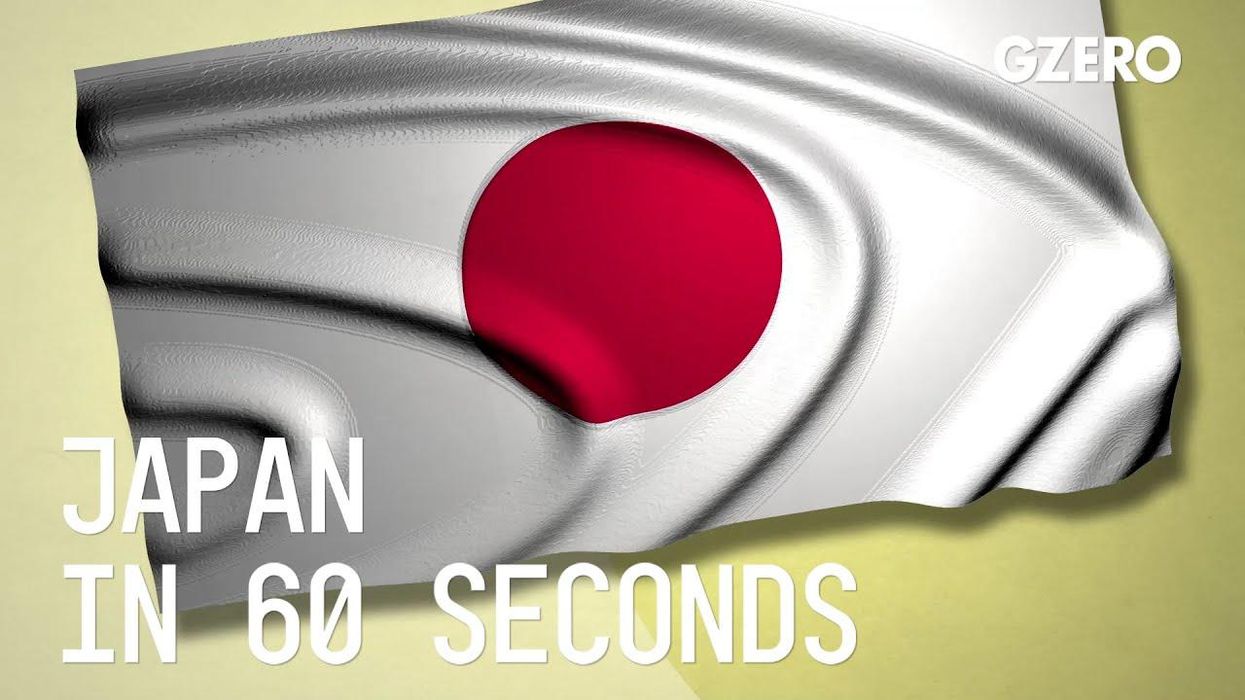Trending Now
We have updated our Privacy Policy and Terms of Use for Eurasia Group and its affiliates, including GZERO Media, to clarify the types of data we collect, how we collect it, how we use data and with whom we share data. By using our website you consent to our Terms and Conditions and Privacy Policy, including the transfer of your personal data to the United States from your country of residence, and our use of cookies described in our Cookie Policy.
Japan
Japan's ruling Liberal Democratic Party head Shigeru Ishiba (R, front) is formally inaugurated as prime minister in a ceremony with Emperor Naruhito (L) at the Imperial Palace in Tokyo on Nov. 11, 2024.
In a stunning feat of survival, Japanese Prime Minister Shigeru Ishiba of the Liberal Democratic Party won a run-off vote on Monday that will keep him in his job despite his party losing its parliamentary majority in last month’s snap elections.
The back story: Ishiba, a former defense minister, took over as LDP leader in September after his predecessor, Fumio Kishida, resigned amid corruption scandals. Gambling on a fresh mandate, Ishiba called snap elections. It didn’t work out: The LDP took a beating.
Now, he will preside over a minority government. The LDP will work on a vote-by-vote basis with a small, centrist faction, the Democratic Party for the People, whose leader on Monday caused waves of his own by admitting to have cheated on his wife with a model.
Ishiba has his work cut out for him. Growth in the world’s fourth-largest economy is sluggish, and inflation is high. Meanwhile, Ishiba has said Japan faces “the most severe and complicated security environment” since World War II, as China and North Korea become more assertive, and Donald Trump’s return to the White House heralds a more protectionist and transactional attitude from Tokyo’s most important security ally.Meet Mikako Kotani, Sports Director of the Olympic and Paralympic Games for Tokyo 2020. A two-time bronze medalist in synchronized swimming, Kotani explains to GZERO Media the importance sports and competition have had in her life and describes the inspiration the Olympics are to Japan and the world. The 2020 Games, postponed last year due to the COVID-19 pandemic, face unprecedented challenges for organizers and athletes. Kotani says they can also be an opportunity to bring the world together in her home country, and details the protocols and safety measures the Olympic Committee are enacting to protect all who participate. The series "Japan in 60 Seconds" is produced in partnership with the Consulate General of Japan.
This video is sponsored by the Consulate General of Japan.
As part of our special "In 60 Seconds" series on Japan's domestic and international response to the pandemic, GZERO Media spoke to Dr. Satoshi Ezoe, Director of the Global Health Policy Division in Japan's Ministry of Foreign Affairs. Dr. Ezoe breaks down his nation's contributions to multilateral efforts like the COVAX facility and the ACT Accelerator program and describes their impact on the developing world. He also details Japan's commitment to universal health care and how that policy and infrastructure have benefited the nation during the pandemic. "Japan in 60 Seconds" is produced in partnership with the Consulate General of Japan.
This video is sponsored by the Consulate General of Japan.
Japan's Cabinet Minister Yasutoshi Nishimura is the person charged with leading economic revitalization and coronavirus response for his nation. In this conversation with GZERO's Ian Bremmer, Nishimura explains the challenges Japan has faced, the road to recovery, and what the example of Japan can teach the world. The video is part of a limited "Japan in 60 Seconds" series produced in partnership with the Consulate General of Japan.
This video is sponsored by the Consulate General of Japan.
When it comes to preparedness for this global crisis, Japan had a key advantage—a universal healthcare system that provides medical attention to all at no or low cost to the patient. But there were other cultural and institutional factors at play, as Pulitzer Prize-winning health journalist Laurie Garrett explains. The video is part of a limited "Japan in 60 Seconds" series produced in partnership with the Consulate General of Japan.
This video is sponsored by the Consulate General of Japan.
New "Japan In :60" limited series: What the world can learn from Japan’s pandemic response
As the COVID pandemic rages across the world, some nations have done better than others in both public health response and economic recovery. One bright spot has been Japan -- despite having the oldest population and economic challenges prior to the global crisis, the country has ranked among the very lowest in the G7 in terms of mortality rates and GDP decline.
In a new limited video series, "Japan In 60 Seconds," presented by GZERO Media in partnership with the Consulate General of Japan, the GZERO team will explore the reasons why, talking with leading experts and officials from Japan and beyond. What can the world learn from Japan's pandemic response? One key lesson is that no nation is truly an island.
The kickoff to the series offers a brief overview of pandemic response in Japan —from early lessons learned, to public health campaigns and infrastructure that have made Japan an example for the world.
This video is sponsored by the Consulate General of Japan.
